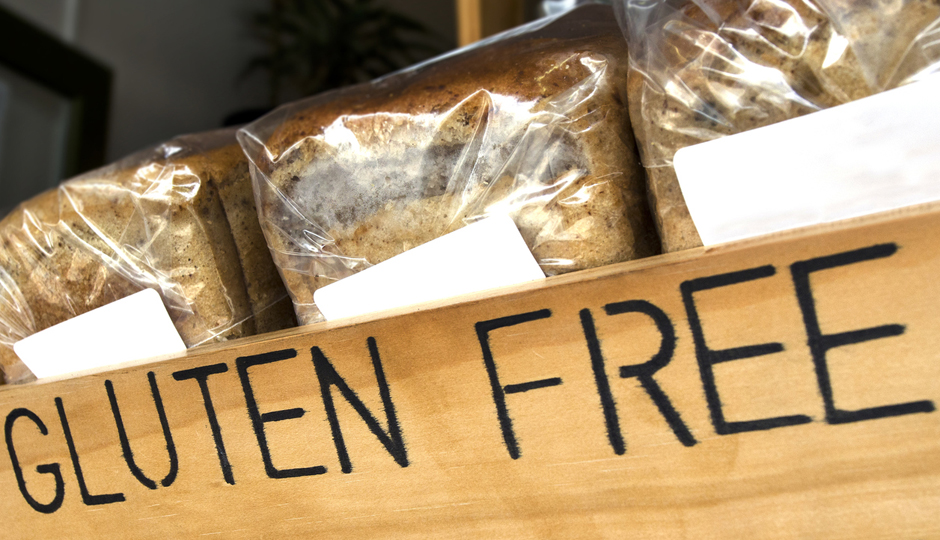6 Dos and Don’ts of New Year Dieting, According to a Philly Dietitian
It’s true: When it comes to the new year, there is new opportunity to make changes, large or small. But guess what? Every day can actually be a new day to make a change. The notion that the new year means a new you doesn’t have to be something you live by. In fact, some of us are set up for failure if we handle challenges and new goals this way. Plus, when it comes to diet, making small changes is really what creates huge rewards.
Oftentimes people think dietitians hold this magic potion to weight loss, locked in a safe place far, far away – only giving this secret potion to very few people, so they may be skinny, confident, and happy. But that is far from the truth – we don’t want to hide ANYTHING from you! We want to teach you! And we especially want to teach you that you don’t have to be skinny to be confident and happy. What you should be is healthy, both mentally and physically, so you can enjoy the moments in your life.
So today, I’m here to share some dieting knowledge with you. Here are my tips for the diet mistakes NOT to make this new year, plus a few tips for what you should do.
1. Do NOT Eliminate an entire food group or ingredient just because your skinny friend did.
Okay, first things first, ask yourself WHY you are taking something out of your diet completely. Do you understand the science or nutrition behind that food? Are you fully aware of other foods in your diet that contain this item?
For example, if upon the new year, you announced, “I am going gluten-free!” why? Do you have celiac disease? Do you have a gluten allergy? Research is finding less folks than you might think are actually gluten-sensitive. And if you think going gluten-free will make you lose weight, think again. Going gluten-free does not correlate with weight loss. So how do some people end up losing weight by going gluten-free? Well, probably because they are simply more aware of the food going into their mouths. They are reading ingredient and food labels, and by paying more attention to the actual labels, they end up consuming less crappy foods. It is because suddenly they are taking more time to examine what is IN their food, not so much the gluten-freeness.
Instead of just cutting something out at random, before eliminating something in your diet, look at your overall diet and see where the pitfalls that could be leading to weight gain are: Perhaps it is actually your portion sizes; it could be your intake of alcoholic beverages; it could be the habit of walking into the kitchen and picking something to eat when you are not even hungry. Those things add up. Take a look at your whole diet before taking something out that you might not need to.
2. Do NOT start going to a “health food” grocery store and think that suddenly makes you healthier.
No. Stop. Keep going to your usual grocery store – you will find all the foods you need at the grocery store where you feel like yourself when shopping. I feel like me at Wegmans. The janitor there thinks I work there, I like going there so much. And rest assured: You will find all the necessary things you need at your local store to prepare yourself for being healthy, including fresh fruits and vegetables, whole grain bread, brown rice, beans, lean proteins, heart healthy fish, eggs, water, milk (whatever kind you might fancy), healthy cooking oils (olive, avocado, walnut, etc.), nuts, seeds, cheeses, whole wheat pastas, potatoes, and so on.
3. Do NOT load up on random foods you normally wouldn’t buy, only to let them rot.
Understand yourself. Are you the type of person to try many new things at once or just a few? My suggestion would be to try one new fruit or vegetable per week and one other product, like brown rice pasta, or cashew butter, or butternut squash, or edamame, or sea bass … something that helps expand your palate and curiosity to new and healthy foods. Buying everything all at once can be overwhelming and you may end up not using the produce or letting those foods expire. So instead, make small additions. This will keep motivating you to try new things, creating a bigger reward of a healthier palate. Plus, your bank account will thank you.
4. Do NOT ignore the Notes section of your Phone.
For a good week or two when you start adjusting your diet, write down every morsel that goes into your mouth and every sip of drink you take Did you count the mint you picked up at the bank while waiting in line? Did you add the brownie from the office kitchen? (You ate it because, while you weren’t hungry, everyone else was doing it so why not?!) The peanut butter leftover on the knife from making your son’s peanut butter and jelly sandwich (between 100 to 200 calories)?
When we write things down, we see where the calories are actually coming from. When we don’t write them down, we don’t realize the “just a little piece of …” or “oh, just a nibble of …” can add up! Even eating those fries that were left on your spouse’s plate count!
Also, start to write your physical activity down. Even if it is walking the mall with your friends for two hours or running back and forth with a toddler around the house or dancing to the same song over and over again in your room, write it down! Seeing these actions in writing can give you a confidence boost. Ever spend an afternoon doing cartwheels over and over again with a four-year-old? I have and, wow, my arms felt like noodles the next day.
5. DO set small goals to start.
In the Notes app you use to write down the foods you eat, set daily small goals. Or, set one goal a week and let them add up. Here are a few examples:
- “I will eat breakfast today.”
- “I will take the dog and MYSELF out for a walk for at least 30 minutes.”
- “I will play outside with my son.”
- “I will drink an additional two glasses of water today.”
- “I will eat dessert — but I will share it with my hubby.”
- “I will eat a piece of fruit when I get home instead of opening the bag of chips.”
- “I will wake up 15 minutes early to prepare lunch to take to work instead of eating at the local cafe.”
- “I will write out my grocery list instead of showing up unprepared.”
- “I will eat a healthy snack before grocery shopping so I am satisfied and not tempted to buy salty, sugary, or fatty snacks.”
- “I will drag my husband off the couch and along with me on a walk to spend quality time together and exercise.”
Don’t overwhelm yourself. Little bits add up to something big in the end!
6. DO share your goals.
Find someone you can trust and feel comfortable enough with to announce your lifestyle change. When we tell someone about our goals and then take action (and write things down), we become a it more accountable of our actions. Find someone that is your cheerleader. This person might also help you because they may know your strengths and weaknesses and can also help set your initial goals. Then, whether or not you’re succeeding or struggling, that person can help push you along.
………………
Jenna Stranzl is a registered dietitian in Philadelphia and consulting sports nutritionist for athletes of all types including the PGA Tour golfers, NY Islanders NHL organization, Vincera Institute, and Velocity Sports Performance Cherry Hill. To find out more about Jenna’s services and blog posts, visit jennastranzl.com.
Like what you’re reading? Stay in touch with Be Well Philly—here’s how:
- Like Be Well Philly on Facebook
- Follow Be Well Philly on Twitter
- Follow Be Well Philly on Instagram
- Follow Be Well Philly on Pinterest
- Get the Be Well Philly Newsletter



